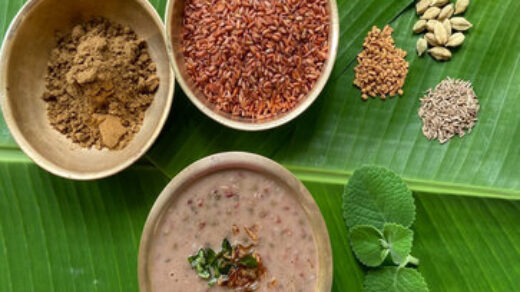Best Ayurvedic Treatment for Diarrhea Relief
Diarrhea is a common condition characterized by frequent, loose, or watery stools. Ranging from a mild, temporary inconvenience to a severe, life-threatening illness, it can significantly impact daily life. This digestive upset is often caused by infections from bacteria, viruses, or parasites, but it can also arise from food intolerances, medication side effects, or underlying medical conditions.
Common symptoms associated with diarrhea include abdominal cramps, bloating, nausea, and in severe cases, dehydration. Prolonged or severe diarrhea can lead to electrolyte imbalance and malnutrition, highlighting the importance of timely and appropriate treatment.
The Importance of Natural and Holistic Treatments
While conventional medicine offers effective treatments for diarrhoea, there is a growing interest in exploring natural and holistic approaches.
These methods often focus on addressing the root cause of the imbalance rather than merely suppressing symptoms.
By strengthening the digestive system and promoting overall well-being, natural therapies can provide long-term benefits and reduce the likelihood of recurrence.
Ayurveda: A Holistic Approach to Diarrhoea
Ayurveda, an ancient Indian system of medicine, offers a comprehensive approach to treating diarrhoea. Rooted in the principles of balance and harmony, Ayurveda considers diarrhoea as an imbalance of the digestive fire or agni.
By assessing an individual’s unique constitution (dosha) and the underlying cause of the imbalance, Ayurvedic practitioners can recommend tailored treatment plans.
This holistic approach encompasses dietary modifications, herbal remedies, lifestyle changes, and specific therapies to restore digestive health and promote overall well-being.
Understanding Diarrhoea in Ayurveda
In Ayurveda, diarrhoea is referred to as Atisara. It is considered a condition where the digestive system is unable to properly process and absorb nutrients, leading to frequent and watery stools.
This imbalance is primarily linked to disturbances in the doshas, the three fundamental energies that govern the body.
Doshas Involved in Diarrhoea
While all three doshas (Vata, Pitta, and Kapha) can contribute to diarrhoea, the primary culprits are Pitta and Vata.
- Pitta: This dosha is associated with fire and transformation. An aggravated Pitta can lead to excessive heat in the digestive tract, causing inflammation and increased bowel movements. This type of diarrhoea is often accompanied by burning sensations, heartburn, and yellowish stools.
- Vata: Representing air and movement, Vata governs the elimination process. When imbalanced, Vata can accelerate bowel movements, leading to frequent, loose stools. This type of diarrhoea is often characterized by dry, gassy stools and abdominal cramps.
Imbalance Leading to Diarrhoea
- Pitta Imbalance: Excessive consumption of spicy, acidic, or hot foods can aggravate Pitta. This increased heat can disrupt the digestive process, leading to inflammation and diarrhoea.
- Vata Imbalance: Irregular eating habits, excessive stress, and cold or dry foods can imbalance Vata. This can weaken the digestive fire and accelerate bowel movements, resulting in diarrhoea.
By understanding the role of Pitta and Vata in diarrhoea, Ayurvedic practitioners can tailor treatment plans to address the underlying imbalance and promote digestive health.
1. Common Ayurvedic Remedies for Diarrhoea
Ayurveda offers natural solutions for diarrhea. Herbal remedies like bael, fenugreek, ginger, and pomegranate, combined with dietary adjustments and lifestyle modifications, can provide effective relief.
a. Bael (Aegle marmelos)
Bael, revered in Ayurveda as Bilva, is a powerful herb traditionally used for treating diarrhoea. It possesses excellent anti-inflammatory and antimicrobial properties, making it effective in combating the underlying causes of this condition.
Benefits:
- Anti-diarrhoeal: Bael helps to reduce the frequency and intensity of loose stools.
- Antimicrobial: It effectively fights against harmful bacteria and pathogens that can cause diarrhoea.
- Anti-inflammatory: Reduces inflammation in the digestive tract, soothing irritation.
- Digestive aid: Improves digestion and absorption of nutrients.
Usage:
Bael can be consumed in various forms:
- Bael fruit: The unripe fruit is particularly beneficial for diarrhoea. It can be consumed directly, or its pulp can be extracted and mixed with water or honey.
- Bael powder: Dried bael fruit can be powdered and consumed with water.
- Bael juice: Fresh bael juice, often sweetened with honey, is a refreshing and effective remedy.
- Bael sharbat: A sweetened bael drink is widely available and can be consumed as per instructions.
Preparation methods:
- Bael pulp: Extract the pulp from the unripe bael fruit. Mix it with water or honey and consume.
- Bael powder: Dry the unripe Bael fruit and grind it into a fine powder. Mix with water and consume.
- Bael juice: Extract fresh juice from ripe Bael fruit. Add water and honey to taste.
b. Fenugreek Seeds (Trigonella foenum-graecum)
Fenugreek, known as Methi in Ayurveda, is another valuable herb for managing diarrhoea. It has a soothing effect on the digestive system and helps to reduce inflammation.
Benefits:
- Anti-inflammatory: Reduces inflammation in the digestive tract.
- Digestive aid: Improves digestion and absorption.
- Appetizer: Stimulates appetite, which can be beneficial during diarrhoea.
- Nutrient-rich: Contains essential vitamins and minerals.
Usage:
Fenugreek seeds can be consumed in various forms:
- Fenugreek seeds: Can be soaked in water overnight and consumed the next morning.
- Fenugreek powder: Can be mixed with water or yogurt and consumed.
- Fenugreek sprouts: Can be added to salads or consumed as a side dish.
Preparation methods:
- Soaked fenugreek seeds: Soak 1 teaspoon of fenugreek seeds in a glass of water overnight. Strain and consume the water in the morning.
- Fenugreek powder: Grind fenugreek seeds into a fine powder. Mix half a teaspoon of powder with water or yoghurt and consume.
c. Ginger (Zingiber officinale)
Ginger, or Adrak in Ayurveda, is a potent herb with numerous therapeutic properties. It is particularly beneficial for digestive disorders, including diarrhoea.
Benefits:
Anti-inflammatory: Reduces inflammation in the digestive tract.
- Anti-nausea: Helps alleviate nausea often associated with diarrhoea.
- Digestive stimulant: Improves digestion and absorption.
- Carminative: Reduces gas and bloating.
Usage:
Ginger can be consumed in various forms:
- Fresh ginger: This can be grated and added to tea, water, or food.
- Dried ginger powder: Can be added to food or beverages.
- Ginger tea: Can be prepared by steeping fresh or dried ginger in hot water.
- Ginger supplements: Available in capsule or tablet form.
Preparation methods:
- Ginger tea: Grate a small piece of fresh ginger. Steep it in hot water for a few minutes. Add honey or lemon for taste.
- Ginger water: Grate a small piece of ginger and add it to a glass of water. Let it infuse for a few minutes before drinking.
- Ginger paste: Grate fresh ginger and mix it with a little water to form a paste. This can be added to food or consumed directly.
d. Pomegranate (Punica granatum)
Pomegranate, or Anar in Ayurveda, is a nutrient-rich fruit with astringent properties that can be beneficial for diarrhoea.
Benefits:
- Astringent: Helps to tighten and soothe the intestinal lining.
- Antioxidant: Protects cells from damage.
- Anti-inflammatory: Reduces inflammation.
- Rich in nutrients: Provides essential vitamins, minerals, and fibre.
Usage:
Pomegranate can be consumed in various forms:
- Fresh pomegranate seeds: Can be eaten directly.
- Pomegranate juice: This can be consumed as is or diluted with water.
- Pomegranate peel: Can be dried and powdered for use in herbal preparations.
Preparation methods:
Pomegranate juice: Extract juice from fresh pomegranate seeds. Can be consumed directly or diluted with water.
2. Dietary Adjustments
Foods to Avoid
To manage diarrhoea, it’s essential to avoid foods that can irritate the digestive system and worsen symptoms. These include:
- Spicy foods: Chillies, pepper, and other spicy condiments.
- Oily and fried foods: These are heavy on the stomach.
- Dairy products: Milk and dairy-based products can aggravate diarrhoea in some individuals.
- Raw fruits and vegetables: These can be difficult to digest and may worsen symptoms.
- Caffeine and alcohol: These can dehydrate the body and exacerbate diarrhoea.
- Refined sugars and artificial sweeteners: These can disrupt the digestive balance.
Recommended Foods and Drinks
Opt for easily digestible and soothing foods to aid in recovery:
- Rice: Easily digestible and binding, rice is a staple in diarrhoea management.
- Bananas: Rich in potassium, bananas help replenish electrolytes lost through diarrhoea.
- Applesauce: Provides pectin, which has anti-diarrhoeal properties.
- Toast: Bland and easily digestible, toast can be a good option.
- Yoghurt: Contains probiotics, which can help restore gut flora.
- Clear broths: Chicken or vegetable broths can provide hydration and essential nutrients.
Importance of Hydration and Specific Hydrating Solutions
Dehydration is a common complication of diarrhoea, so it’s crucial to replenish lost fluids and electrolytes.
- Water: While plain water is essential, it may not be enough to replace lost electrolytes.
- Oral Rehydration Solutions (ORS): These commercially available solutions contain a specific balance of sugars, salts, and water to effectively rehydrate the body.
- Rice water: A traditional remedy, rice water is believed to have soothing properties and can help replenish fluids.
- Coconut water: Naturally rich in electrolytes, coconut water can be a hydrating option.
Remember, the severity of diarrhoea will determine the specific dietary adjustments needed. In severe cases, it’s essential to consult a healthcare professional.
3. Lifestyle Modifications
Stress Management Techniques
Stress can significantly aggravate digestive issues, including diarrhoea. Incorporating stress management techniques into your daily routine is essential for overall well-being and digestive health.
- Deep breathing exercises: These help calm the nervous system and reduce stress.
- Meditation and mindfulness: These practices can help manage stress and promote relaxation.
- Yoga and tai chi: Gentle physical activities that combine movement with mindfulness.
- Spending time in nature: Connecting with nature can be a powerful stress reliever.
Proper Sleep and Rest
Adequate sleep is crucial for bodily functions, including digestion. Aim for 7-9 hours of uninterrupted sleep each night.
- Create a sleep-conducive environment: Ensure your bedroom is dark, quiet, and cool.
- Establish a regular sleep schedule: Go to bed and wake up at the same time each day.
- Limit screen time before bed: The blue light emitted by screens can interfere with sleep.
Importance of Hygiene
Maintaining good hygiene is essential to prevent the spread of infection and reduce the risk of diarrhoea.
- Wash hands thoroughly: Use soap and water before and after using the toilet, preparing food, and eating.
- Proper food handling: Store food safely, cook thoroughly, and avoid cross-contamination.
- Clean surfaces regularly: Keep your living space clean and sanitized.
By incorporating these lifestyle modifications into your daily routine, you can significantly improve your overall health and well-being, and effectively manage diarrhoea.
4. Ayurvedic Formulations
a. Kutajarishta
Kutajarishta is a renowned Ayurvedic formulation widely used for managing diarrhoea, dysentery, and other intestinal disorders. It’s a polyherbal preparation with Holarrhena antidysenterica as its primary ingredient.
Benefits:
- Anti-diarrhoeal: Effectively reduces the frequency and severity of loose stools.
- Anti-inflammatory: Helps reduce inflammation in the intestinal tract.
- Astringent: Possesses properties that help to tighten and soothe the intestinal lining.
- Digestive aid: Improves digestion and absorption.
Usage:
Kutajarishta is typically used in the management of acute and chronic diarrhoea, dysentery, and irritable bowel syndrome. It can also be beneficial in conditions like colitis and inflammatory bowel diseases.
Dosage:
- The recommended dosage of Kutajarishta is usually 15-20 ml or 3-4 teaspoons, diluted with equal parts of lukewarm water. It is generally taken once or twice a day, preferably after meals.
Important Note:
- It’s essential to consult an Ayurvedic practitioner for accurate diagnosis and appropriate dosage.
- Kutajarishta contains alcohol, so it should be used with caution in individuals with alcohol intolerance or liver disease.
- Pregnant and breastfeeding women should consult their healthcare provider before using Kutajarishta.
b. Musta Churna (Cyperus rotundus powder)
Musta Churna, derived from the root of the Cyperus rotundus plant, is another valuable Ayurvedic remedy for diarrhoea. It is known for its astringent, anti-inflammatory, and digestive properties.
Benefits:
- Astringent: Helps to tighten and soothe the intestinal lining.
- Anti-inflammatory: Reduces inflammation in the digestive tract.
- Digestive aid: Improves digestion and absorption.
- Carminative: Helps to reduce gas and bloating.
Usage:
Musta Churna is primarily used for diarrhoea, dysentery, and other digestive disorders. It can also be beneficial for conditions like irritable bowel syndrome and inflammatory bowel diseases.
Dosage:
- The recommended dosage of Musta Churna varies depending on the individual’s condition and age. Generally, it is taken in doses of 1-2 grams, twice or thrice a day, with water or honey.
Important Note:
- It’s essential to consult an Ayurvedic practitioner for accurate diagnosis and appropriate dosage.
- Musta Churna should be used under the guidance of a qualified healthcare professional.
- Pregnant and breastfeeding women should avoid using Musta Churna without consulting their doctor.
c. Bilva Churna (Bael Fruit Powder)
Bilva Churna, derived from the dried pulp of the Bael fruit (Aegle marmelos), is a valuable Ayurvedic remedy for diarrhoea. It is known for its astringent, anti-inflammatory, and digestive properties.
Benefits:
- Astringent: Helps to tighten and soothe the intestinal lining.
- Anti-inflammatory: Reduces inflammation in the digestive tract.
- Digestive aid: Improves digestion and absorption.
- Antimicrobial: Helps to combat harmful bacteria.
Usage:
Bilva Churna is primarily used for diarrhoea, dysentery, and other digestive disorders. It can also be beneficial for conditions like irritable bowel syndrome and inflammatory bowel diseases.
Dosage:
- The recommended dosage of Bilva Churna varies depending on the individual’s condition and age. Generally, it is taken in doses of 1-2 grams, twice or thrice a day, with water or honey.
Important Note:
- It’s essential to consult an Ayurvedic practitioner for accurate diagnosis and appropriate dosage.
- Bilva Churna should be used under the guidance of a qualified healthcare professional.
- Pregnant and breastfeeding women should avoid using Bilva Churna without consulting their doctor.
Tips to Prevent Diarrhoea from an Ayurvedic Perspective
Preventing diarrhoea involves maintaining a balanced digestive system. Here are some Ayurvedic tips:
Balanced Diet:
- Consume foods that are easy to digest and nourishing.
- Incorporate a variety of fresh fruits, vegetables, and whole grains into your diet.
- Avoid excessive cold, dry, or spicy foods.
- Practice mindful eating and chew your food thoroughly.
Regular Meal Times:
- Establish regular meal times to maintain a healthy digestive rhythm.
- Avoid irregular eating patterns and excessive snacking.
Proper Digestion:
- Include digestive spices like cumin, coriander, and ginger in your meals.
- Avoid consuming cold drinks immediately after meals.
Lifestyle Factors:
- Manage stress through techniques like yoga, meditation, or deep breathing.
- Ensure adequate sleep and rest.
- Maintain good hygiene practices, including regular handwashing.
- Avoid excessive physical exertion.
Seasonal Considerations:
- Adapt your diet and lifestyle according to the seasons.
- Consume foods that are in season and easily digestible.
Importance of Maintaining Digestive Health
A healthy digestive system is crucial for overall well-being. It plays a vital role in extracting nutrients from food, absorbing water, and eliminating waste. Regular bowel movements, absence of bloating, and good appetite are signs of a healthy digestive system.
When to Seek Medical Attention
While Ayurvedic treatments can be effective for many cases of diarrhoea, it’s essential to recognize when to seek professional medical help.
Signs and Symptoms Indicating a Need for Professional Medical Help
- Severe dehydration: Signs include excessive thirst, dry mouth, dizziness, rapid heartbeat, and dark urine.
- Bloody or black stools: These can indicate severe intestinal bleeding.
- High fever: A persistent high fever may signal a serious infection.
- Severe abdominal pain: If the pain is intense, persistent, or accompanied by other alarming symptoms, seek medical attention.
- Diarrhoea lasting more than a few days: Prolonged diarrhoea can lead to dehydration and other complications.
- Vomiting: Persistent vomiting can also lead to dehydration and electrolyte imbalance.
- Weight loss: Unexplained weight loss accompanied by diarrhoea can be a sign of an underlying medical condition.
Understanding When Ayurvedic Treatments May Be Insufficient
Ayurveda offers effective remedies for many digestive imbalances, but it’s essential to understand its limitations. In cases of severe or chronic diarrhoea, underlying medical conditions may be the root cause.
- Complex underlying conditions: Conditions like inflammatory bowel disease (IBD), irritable bowel syndrome (IBS), or infections may require specialized medical treatment.
- Persistent symptoms: If Ayurvedic remedies fail to provide relief after a reasonable period, it’s advisable to consult a healthcare professional.
- Severe symptoms: As mentioned earlier, severe symptoms like bloody stools, high fever, or severe dehydration necessitate immediate medical attention.
Remember, Ayurveda and modern medicine can complement each other. Consulting an Ayurvedic practitioner alongside a healthcare professional can provide a comprehensive approach to managing diarrhoea and related issues.


























